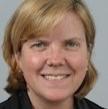On this page:
Description:
Thursday January 19, 2017 1:00pm - 2:30pm EST
Sustainable materials management is a systemic approach to using and reusing materials more productively over their entire life cycles. Oregon’s 2050 Vision for Materials Management charts a major shift in the state’s programs, expanding from recycling and waste management to include a strong focus upstream, addressing production and consumption. This webinar tells the story of Oregon’s shift from discards management to full life-cycle materials management, introduce Oregon’s 2050 Vision, discuss the reason for the shift, present recent legislative activity, and provide a sampling of new work.
The webinar also features two specific projects, the consumption-based greenhouse gas emissions inventory and their statewide strategy to reduce the wasting of food in commercial and household kitchens. Oregon’s consumption-based greenhouse gas emissions inventory estimates the global, life-cycle emissions associated with all goods and services (including materials) purchased by Oregonians. While Oregon pioneered this approach at the sub-national scale in North America, consumption-based inventories are currently being developed for all members of the C40 Cities, a global network of 80 large cities committed to addressing climate change. Oregon is also producing a major statewide strategy to reduce the wasting of food in commercial and household kitchens through source reduction, or waste prevention, and edible food donation. This strategy is pushing further up the hierarchy, beyond recovery and edible food donation to waste avoidance.
Video: The Story and Highlights of Oregon’s 2050 Vision of Materials ManagementExit
Speakers:
David Allaway, Senior Policy Analyst, Oregon Department of Environmental Quality: David Allaway is a senior policy analyst at the Oregon Department of Environmental Quality’s Materials Management Program. He coordinates a variety of projects related to materials (including waste) management, sustainable production and consumption, greenhouse gases, and life cycle analysis. In 2010, he helped to staff the Oregon Global Warming Commission’s “Roadmap to 2020” project. He also leads efforts to develop and update Oregon’s consumption-based greenhouse gas emissions inventory, contributed to the ICLEI US greenhouse gas accounting protocols for communities and recycling, and led the sustainable production and consumption elements of Oregon’s 2050 Vision. Before joining DEQ in 2000, David worked for 11 years in the solid waste consulting industry. A native of Oregon, David has a B.A. in physics from Carleton College, Minnesota.
 Elaine Blatt, Senior Policy and Program Analyst, Oregon Department of Environmental Quality: Elaine Blatt is a Senior Policy and Program Analyst at the Oregon Department of Environmental Quality. She joined DEQ in February 2016, and her primary focus is on sustainable consumption and production of materials, with an initial focus on preventing the wasting of food. Her prior experience includes consulting and managing a variety of projects related to sustainable production and consumption, biodiversity, energy efficiency, finance, and supply chain management, including work for the US Agency for International Development and the European Commission. She managed support for the US-Asia Environmental Partnership, a USAID program focused on working with local partners to address urban environmental issues, including air and water quality, waste management, energy efficiency and renewable energy. While in Asia, she also helped develop and implement a groundbreaking project to bring cleaner production practices to more than 400 Thai manufacturers. She has a MA in Public Policy from the University of Chicago and a BA in Political Science from Carleton College
Elaine Blatt, Senior Policy and Program Analyst, Oregon Department of Environmental Quality: Elaine Blatt is a Senior Policy and Program Analyst at the Oregon Department of Environmental Quality. She joined DEQ in February 2016, and her primary focus is on sustainable consumption and production of materials, with an initial focus on preventing the wasting of food. Her prior experience includes consulting and managing a variety of projects related to sustainable production and consumption, biodiversity, energy efficiency, finance, and supply chain management, including work for the US Agency for International Development and the European Commission. She managed support for the US-Asia Environmental Partnership, a USAID program focused on working with local partners to address urban environmental issues, including air and water quality, waste management, energy efficiency and renewable energy. While in Asia, she also helped develop and implement a groundbreaking project to bring cleaner production practices to more than 400 Thai manufacturers. She has a MA in Public Policy from the University of Chicago and a BA in Political Science from Carleton College
Slides:
You may need a PDF reader to view some of the files on this page. See EPA’s About PDF page to learn more.-
The Story and Highlights of Oregon’s 2050 Vision of Materials Management (PDF)(4 pp, 396 K)
SMM webinar introductory slides
-
The Story and Highlights of Oregon’s 2050 Vision of Materials Management (PDF)(47 pp, 2 MB)
Oregon DEQ's webinar slide presentation

